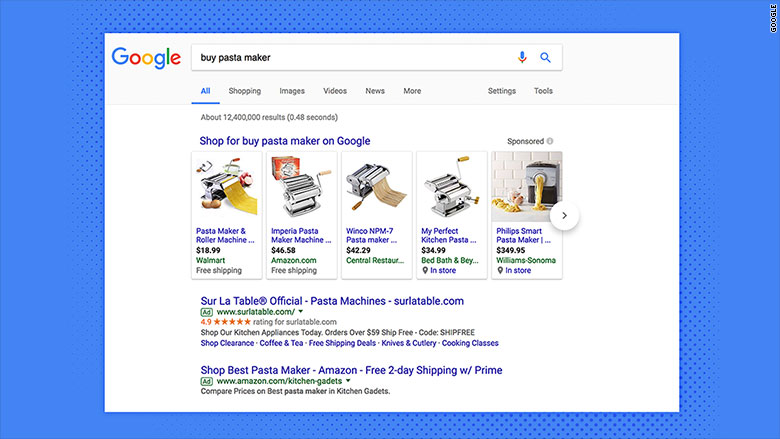The European Commission has fined Google a record-breaking €2.42 billion (~$2.73BN) for antitrust violations pertaining to its Google’s Shopping search comparison service — in what is widely considered the most significant antitrust ruling in Europe since the 2004 Microsoft decision.
For some context on the size of the fine, Google’s (Alphabet’s) full year revenue for 2016 was almost $90BN. The Commission said the fine has been calculated on the basis of the value of Google’s revenue from its comparison shopping service in the 13 EEA (European Economic Area) countries concerned.
Its finding states that:
- Google has systematically given prominent placement to its own comparison shopping service: when a consumer enters a query into the Google search engine in relation to which Google’s comparison shopping service wants to show results, these are displayed at or near the top of the search results.
- Google has demoted rival comparison shopping services in its search results: rival comparison shopping services appear in Google’s search results on the basis of Google’s generic search algorithms. Google has included a number of criteria in these algorithms, as a result of which rival comparison shopping services are demoted. Evidence shows that even the most highly ranked rival service appears on average only on page four of Google’s search results, and others appear even further down. Google’s own comparison shopping service is not subject to Google’s generic search algorithms, including such demotions.

Photo: Google's own shopping services get prime viewing space
As a result, the EC said it found Google’s comparison shopping service is much more visible to consumers in Google’s search results, while rival comparison shopping services are much less visible.
Speaking during a press conference about the ruling, Competition Commissioner Margrethe Vestager said: “Google has given its own comparison shopping service an illegal advantage by abusing its dominance in general Internet search. It has promoted its own service, and demoted rival services. It has harmed competition and consumers. That’s illegal under EU antitrust rules.”
“This decision requires Google to change the way it operates, and to face the consequences of its actions,” she added.
Google must end the censured conduct within 90 days — or face additional penalty payments of up to 5 per cent of the average daily worldwide turnover of Alphabet, its parent company, for each day of non-compliance. (Although any such fine for non-compliance would require a separate Commission decision — but would be backdated to the date of when the non-compliance started).
Full story at Tech Crunch






